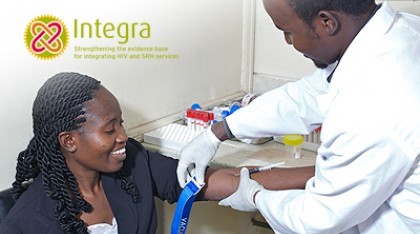Family Life Association of Eswatini (formerly Swaziland)
The Family Life Association of Eswatini was incorporated as a Non-Governmental Organization in 1979. Since registration, FLAS has championed programs to promote access to quality, pro-poor, rights-based, gender equitable, youth-focused, and non-discriminatory SRH and rights information and services. Motivated by its vision, “to see a Swazi society with fully protected, supported and respected SRH and rights”, FLAS operates in the four regions of Eswatini.
FLAS operates 3 private clinics, and among its flagship programs empower young people to access their Sexual Reproductive Health rights through the delivery of Comprehensive Sexuality Education (CSE), Life Skills Education (LSE), quality integrated SRH and HIV services in communities, and through mobile facilities.
The Organisation is a member of numerous technical groups and networks in Eswatini, a member of the SRH Steering Committee, the Gender Consortium, and the Male Circumcision Task Force. We also support the Ministry of Health in rolling out clinical and community health services.
Key Activities:
Delivery of SRH information and CSE through Peer Education
Comprehensive Sexuality Education (CSE) which is also referred to as Life skills education in Eswatini, is a right-based and Gender Focused approach to sexuality education and SRH for both in and out of school young people. It remains key for vulnerable youth (in and out of school) to make choices including the ability to reflect and make informed decisions, communicate and negotiate effectively, and demonstrate assertiveness. All CSE/LSE sessions are delivered by trained peer educators who conduct reviews quarterly in the communities and schools. Mobilization of Adolescents and youth is conducted in groups of 25 – 40 young people, each group using the 12-session LSE manual.
Mobile outreach for very young adolescents
FLAS provides mobile clinical services which include delivery of integrated SRHR services as per the essential service package articulated in the Quality Improvement Package for AYSRHR. A team of service providers makes routine visits to targeted communities to provide clients with integrated SRHR services.
Demand Creation: Mobile outreach service delivery schedules are highly publicized in the communities. Scheduled visits are always advertised in advance at the outreach site. In addition, peer educators raise awareness of SRH-HIV and alert the community to the timing of mobile clinic visits.
Creating an Enabling Environment
Adapting service delivery models to reach young people effectively is critical. However, a supportive environment is an important precursor to service uptake among young vulnerable people. FLAS works to support a conducive environment through changing attitudes and developing awareness amongst community leaders, religious leaders, parents, guardians, and legislators.
Contacts
Contact: +268 2505 3082 (Company direct-line)
Twitter: https://twitter.com/FLAS79
Facebook: https://www.facebook.com/flas79/













